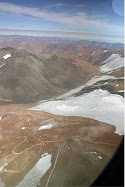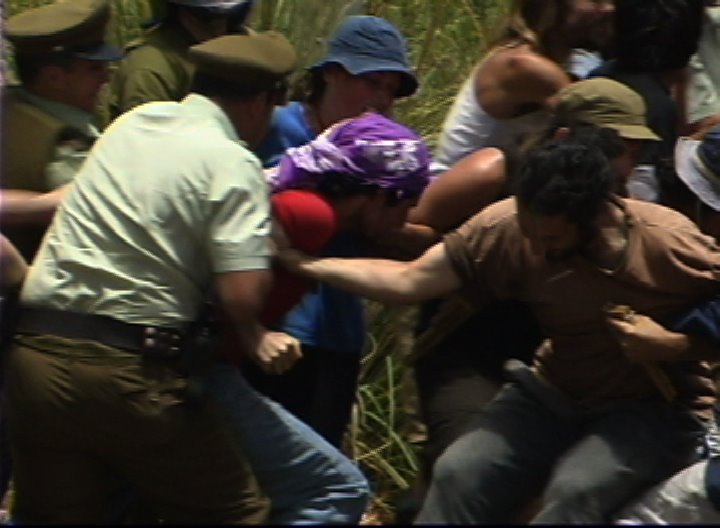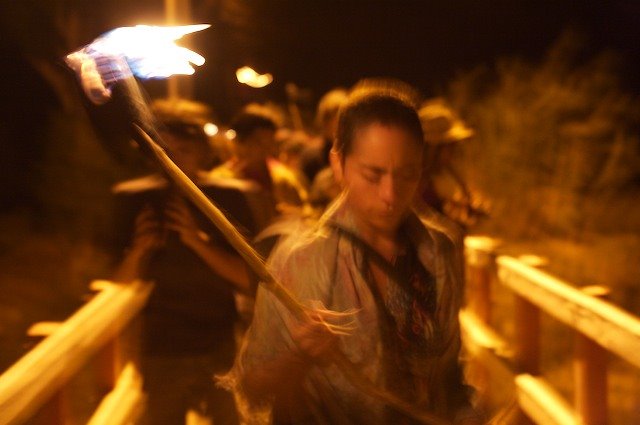Friday June 30, 2006 03:39 PM
On June 21, 2006, a Chilean court returned two of Barrick Gold's Pascua Lama mining leases to prospector Rodolfo Villar, who had agreed to sell them to Barrick but had been paid only 10,000 pesos ($20 CDN). The ruling could have serious consequences since the leases are listed as Barrick's property in a 2004 Protocol to the Chile-Argentina "Treaty of Mining Integration" which could be invalidated as a result. This analysis by Lucio Cuenca, National Coordinator of the Latin American Observatory of Environmental Conflicts (OLCA) was first published in El Mostrador on June 26, 2006
Pascua Lama exists as a binational mining project because in the year 1997 the governments of Argentina and Chile signed a "Treaty of Mining Integration" whose ambit of application is the border region along the Andes and which constitutes the legal framework governing the development of the mining business. Before this treaty, it was not possible to mine deposits located in this mountainous region because they were in "borderized zones" in the case of Chile, and in Argentina, "border zones" and/or "security zones", spaces which in both countries were subject to restrictive laws.
The transnational mining companies, Barrick Gold in particular, pursuaded the governments of both countries that it would be beneficial to create a legal instrument to facilitate the mining business in the border regions.
The recent ruling of the 14th Civil Court of Santiago (case #1912-2001), which overturned the sale of mining claims carried out in March of 1997 in which Rodolfo Villar García ceded to mining company Minera Nevada -- subsidiary of Barrick Gold in Chile -- the rights to properties where the project Pascua Lama is being constructed, brings the thorny problems of this complex conflict to a forefront. The judge completely nullified the contract of sale between Villar and Barrick Gold and ordered the return of the rights of ownership which existed previously in the Amarillo Norte and Tesoro properties (Pascua Lama being located in this last property), returning them to their previous state when the prospector Rodolfo Villar was the owner of these mining rights.
Those of us who are opposed to the Pascua Lama project no matter who the owner be understand that this is a property dispute between miners and is a circumstantial setback for mining operation. It isn't the end of the story. We quote from the declarations of Villar's lawyer, Hernán Montealegre, who has said that, "If there is an interesting offer, this possibility will be examined by Mr. Villar and I don't think that Barrick would commit suicide and has to be ready to pay something that comes near to the real value of this property and clean the shameful image that they have for having swindled a person by paying him 10,000 pesos and by having violated the Constitution."
But what certainly could constitute a bigger obstacle for Pascua Lama are the implications of the ruling regarding some of the legal points generated by the Mining Treaty with Argentina to concretely facilitate the development of the binational project. The Mining Treaty establishes that under petition from investors to establish operations along the border, the parties must sign Additional Specific Protocols, where the "area of operations" and the procedures will be determined for each project.
In the case of Pascua Lama, this protocol was signed and set into law by the Decree of the Ministry of Mining on December 11 of 2004. In this protocol -- among other things -- the "area of operations" is detailed, its limits set, and Nevada Mining Company Ltd.'s 193 mining claims "already constituted" and the 8 "in process" are identified. In this list figure "Amarillos" at 3,600 hectares and "Tesoros" at 2,100 hectares. These mining claims are those the recent ruling returned to Rodolfo Villar, and one could conclude thus that the decree contains serious flaws and should be itself nullified.
It is painfully obvious that the Chilean government has enacted this Decree containing these defects. One might think that the government didn't know. But this case has a long history which the authorities could not ignore. For example, in this case a precautionary order was decreed over the disputed claims which "prohibits the signing of acts and contracts and/or encumbrences and/or transferrals over each of the aforementioned mining properties." Therefore, it was sufficient to request a certificate of ownership valid in the mining district of Vallenar. Our authorities, when they want to make things easier for the "big investors", let themselves be easily carried off and act above the law.
Focusing on the principle of invalidation, Article 53 and subsequent articles of the Administrative Procedures (Law 19.880) which regulate the acts of the authorities that dictated the Decree, states that this same should be nullified administratively on account of a serious flaw. This could be the moment to start to rectify a series of other irregularities and illegalities which have been denounced, but which the governments in power, ceding to the pressure of the transnational mining company, have systematically ignored. It's up to the Minister of Mining and President Bachelet.
Sunday, April 19, 2009
Subscribe to:
Post Comments (Atom)





No comments:
Post a Comment